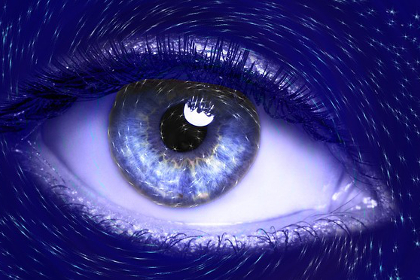
How Your Diet Can Significantly Improve Your Vision
Aging is inevitable, but are age-related problems such as poor vision absolute givens? Contrary to popular belief, your vision is largely dependent on your lifestyle. Nourishing your eyes with appropriate nutrients throughout the years can go a long way toward maintaining good eyesight well into your senior years.
Moreover, even if your eyesight has started to deteriorate, evidence suggests you can stop the deterioration. You may even be able to turn back the clock, as it were, and improve your vision.
September 19, 2016 | Source: Mercola.com | by Dr. Joseph Mercola
Aging is inevitable, but are age-related problems such as poor vision absolute givens? Contrary to popular belief, your vision is largely dependent on your lifestyle. Nourishing your eyes with appropriate nutrients throughout the years can go a long way toward maintaining good eyesight well into your senior years.
Moreover, even if your eyesight has started to deteriorate, evidence suggests you can stop the deterioration. You may even be able to turn back the clock, as it were, and improve your vision.
Foods Can Protect and Improve Your Eyesight
In a recent BBC article,1 Dr. Michael Mosley discusses his own vision problems and his experiences with nutritional intervention, featured in an episode of the BBC program "Trust Me, I'm a Doctor," aired on September 8, 2016.
The shape and length of your eyeballs, and the thickness of your eye lens affect your ability to see things close-up and at a distance. Your retina, located at the back of your eye, also contains light-sensitive cells that are critical for good vision.
Your macula — the part of your retina responsible for central vision — is protected by a yellow pigment, made up of lutein, zeaxanthin and meso-zeaxanthin. These compounds absorb light and protect your macula from blue light and ultraviolet (UV) light from the sun and other light sources.2
Lutein, zeaxanthin and meso-zeaxanthin are plant compounds with potent antioxidant capacities. Your body cannot make them, so you must get them from your diet. As noted by the BBC:3
"Lutein and zeaxanthin are found commonly in dark green leafy veg such as kale and spinach, and also bell peppers, corn and saffron. Meso-zeaxanthin is generally not found in plants — it is thought to be made in our bodies from lutein (although it is also present in some fish … )
These pigments, once we eat them, appear to be important in our vision and in helping keep the macula healthy."
Lutein and Zeaxanthin Supplements Can Make a Big Difference
Mosley describes undergoing a number of extensive vision tests designed to evaluate the health of his retina, his ability to see colors, night vision and the level of protection his macula had against UV and blue light.
"The results of my tests were both fascinating and depressing. My detection of yellow and blue colors was extremely poor — something that [Professor John] Barbur said was likely the result of my brush with diabetes many years ago," Mosley writes.
My night vision and perception of details were also poor compared with younger people — but consistent with my age. The Trust Me team then handed me a 90-day supply of supplement pills that were supposed to help."
The supplements in question contained lutein and zeaxanthin. Three months later, follow-up tests revealed remarkable improvement. Not only was his night vision and protective macular pigments improved, but his blue and yellow color perception was now within the normal range.
Some studies suggest these nutrients may also slow down or prevent age-related macular degeneration (ARMD), which is the leading cause of blindness among the elderly, followed by cataracts.
